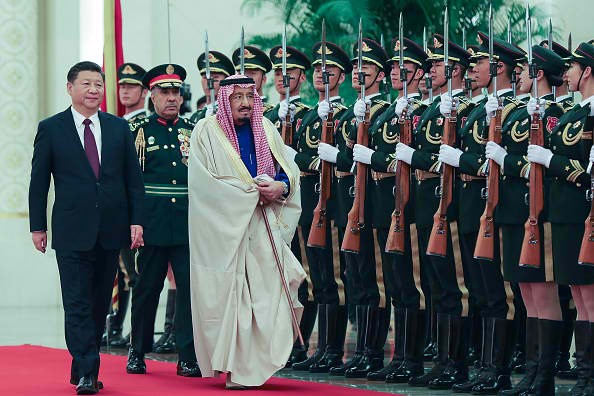King Salman of Saudi Arabia visited China recently. The visit had a strategic importance to the king as he discussed issues on security and military.
Dr. Naser Al-Tamimi is a political analyst and commentator on energy politics and Gulf-Asia relations. He believes that sustaining China-Saudi ties is not just about oil trade.
He wrote a commentary and stated, "Although energy and trade will likely occupy an important place in the talks between the two leaders, the relations between both countries have expanded in various fields, especially in defense and security."
Oil trade is still the ground that lays the foundation for the strong trade between the two countries. China's demand for oil is 11.9 barrels per day in 2016 compared to 2.9 million barrels per day in 1993.
China's import of oil composes 66 percent of the entire country's oil supply and makes Saudi a very important trade partner.
Saudi also holds stakes in Chinese petrochemical companies. The Saudi Basic Industries Corp. (SABIC) already holds a stake in a polycarbonate complex in Tianjin run by China Petroleum & Chemical Corporation (Sinopec Group).
Saudi Aramco partly owns the Fujian Refining & Petrochemical Company.
China is predicted to hold the majority of the Saudi export market. According to HSBC, Saudi will be largely flooded by Chinese products until 2030.
Al-Tamimi believes that the partnership between China and Saudi will grow even further in military and security as they try to separate from the U.S.
He wrote, "From the Saudi perspective, Beijing could be regarded as a valuable source of political support as Saudi Arabia continues a path of selective economic reforms whilst also seeking to deflect Western pressure in the political arena."
Premier Li Keqiang also sees the trip as a way for Saudi to strengthen ties just as U.S. President Trump slowly exits the Middle East.
"King Salman's Asia trip occurs against the backdrop that US global dominance has shown signs of declining amid America's gradual withdrawal from the Middle East and China has become increasingly active in the region," Li said.



























